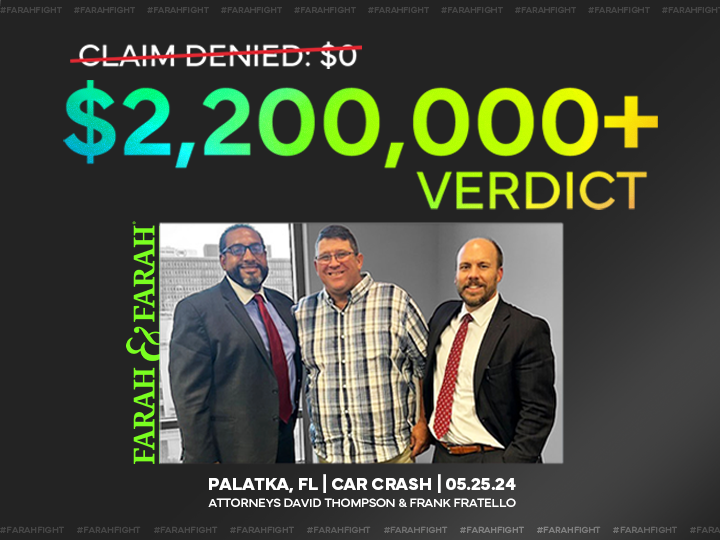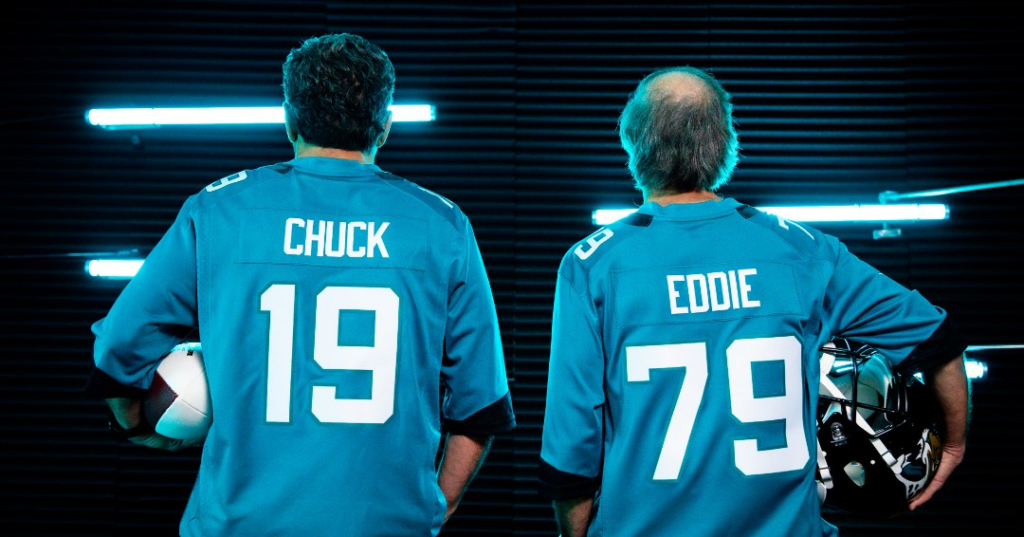Lemon Law Attorneys
A lemon law is a law enacted at the state level that is designed to protect consumers who have purchased consumer goods that don’t meet performance and quality standards. While they technically can refer to any consumer good, the term lemon law is generally used to refer exclusively to motorized vehicles, such as: cars, trucks, boats, RVs, ATVs, SUVs, and motorcycles.
Home » Lemon Law Attorneys
What Is a Lemon?
A “lemon” is a (usually new) motor vehicle that turns out to have defects. These defects can affect the vehicle’s safety, its use, or its value. Although it typically refers to any new vehicle with manufacturing defects, the term “lemon” can also describe any vehicle with severe issues. It can even apply to any consumer good with defects.
What Does Lemon Law Do?
Lemon law requires the manufacturer of a vehicle, or other product, to purchase back any products that have significant defects that can’t be repaired within a certain timeframe. Lemon laws take into account a variety of factors in determining whether a manufacturer has to repurchase a vehicle. These factors include:
- The number of days the vehicle is unusable
- The number of times repairs have been attempted
- The exact problem with the motor vehicle
Lemon Law Factors
If the vehicle can’t be repaired within the amount of time specified by state law, the manufacturer is obligated to repurchase the vehicle. Many people believe that the dealership from which they purchased the vehicle is responsible for repurchasing it, but that’s not the case. The warranty on a vehicle or any consumer product would be through the manufacturer. Some dealerships may offer their own warranty, but they’re not the ones who would be affected by lemon law requirements.
Federal Warranty Laws
Technically, there are no federal lemon laws. There are federal laws that require manufacturers to honor warranties. It’s at the state level that actual lemon laws are passed and enforced.
Types of Warranties
There are two types of warranties: express and implied. An express warranty is one issued by the manufacturer or seller that details exactly what the warranty provides. This type of warranty makes express promises about repair and return policies. An implied warranty is a warranty that comes from a manufacturer’s legal responsibility to maintain standards for their products. Whether a product comes with an express warranty or not, products that fail to meet certain standards can still be returned, replaced or repaired under an implied warranty.
The Magnuson-Moss Warranty Act
In 1975, the federal government passed the Magnuson-Moss Warranty Act. This act is designed to protect consumers in all fifty states and requires manufacturers of vehicles and other consumer products to honor their warranties. This law aims to reduce the likelihood that purchasers are misled by what a warranty actually entails. The law also makes provisions for the manufacturer to pay any attorney’s fees that result from a successful lawsuit.
Consumers who have purchased a defective vehicle can pursue legal relief from either the Magnuson-Moss Warranty Act (MMWA) or from their state lemon laws, or both.
How Does the Magnuson-Moss Warranty Act Protect Consumers?
The Magnuson-Moss Warranty Act requires companies to honor their warranties, whether the warranty is an express warranty or not. This protects consumers by ensuring that even if there is no written warranty, a company has to meet certain standards with its products. If a consumer is forced to sue a company in order to make them abide by that warranty, the Moss-Warranty Act requires the company to pay for the customer’s legal fees if the lawsuit is successful.
When Is it a Breach of Warranty Case?
A breach of warranty case is different from a lemon law case. If a consumer has a product that is considered defective under the product warranty and several attempts at repairs have not brought the item or vehicle up to warranty standards, then it’s considered a breach of warranty. It can also be considered a breach of warranty when the product is unusable for thirty days or more due to being in repair.
Once it’s a breach of warranty, the consumer then has the right to either a full refund or a replacement. If the company refuses to honor the warranty and provide a refund or replacement, the consumer can sue the company. If successful, the company has to pay not only the money awarded but also the consumer’s legal costs.
How Do State Lemon Laws Work?
At the state level is where the laws referred to as “lemon laws” are passed and enforced. They’re all generally the same law in intent. However, they may differ state by state in terms of how many repair attempts are required or for how many days the vehicle has to be unusable by the owner.
For example, in Florida, a manufacturer has three opportunities to repair the same defect. Florida state law also specifies that if the vehicle has been out of service because of repairs for thirty total days (sixty days for RVs), then it’s the manufacturer’s responsibility to repurchase the vehicle.
What Vehicles Are Protected by Lemon Laws?
Which vehicles are protected by lemon laws varies by state. Some states may cover vehicles such as motorcycles, while some do not. For example, Florida’s lemon law covers any vehicle that is designed to transport either goods or people. This includes recreational vehicles, but not their living spaces. Also excluded in Florida are vehicles that run on tracks, trucks that weigh over 10,000 pounds, mopeds, motorcycles, and off-road vehicles.
If someone is leasing a vehicle, the Lemon law can still apply to that vehicle, provided that the lessee is responsible for any repairs and the upkeep of the vehicle.
Who Is Covered by Lemon Laws?
State lemon laws don’t just cover anyone who drives a vehicle. In order to qualify for protection under lemon laws, the person in question must:
- Either be the purchaser of the vehicle or the lessee.
- Excludes those who purchased the vehicle for resale.
- Have had the vehicle transferred to them within the Lemon Law Rights Period.
- Entitled to enforce the vehicle’s warranty.
The owner of the vehicle doesn’t need to be the original purchaser in order to qualify for lemon law protection. The owner does, however, need to have obtained the vehicle within the Lemon Law Rights Period, which is usually 24 months but can also be a specific mileage.
What Defects Are Covered by Lemon Laws?
Exactly what defects are covered may vary by state, but generally include anything that affects the safety or operation of the vehicle and that persists after several repair attempts. Florida’s lemon law describes what it covers as “nonconformities”. A nonconformity is either a condition or defect that significantly impairs the vehicle’s safety, use, or even value.
Any defects caused by an accident, neglect, or abuse aren’t covered by Lemon laws. In addition, any conditions caused by alterations or modifications that were not performed by either the manufacturer or an approved manufacturer’s agent (usually a dealership) are also not covered. The defect must be caused by or be the fault of the manufacturer in order to qualify.
What Is the Lemon Law Rights Period?
The Lemon Rights Law Period is the period in which a vehicle owner may claim protection under their state lemon rights laws. In Florida, this period is 24 months after delivery, not purchase, of the vehicle. If a consumer reports an issue within that 24 month period, even if the three repairs are not attempted or the total number of allowable repair days isn’t up during that period, they’re still eligible for protection under their state’s lemon laws. Some states may have a mileage requirement as well. For example, the Lemon Law Rights Period in Georgia is 2 years or less than 24,000 miles driven.
Once the problem with the vehicle has been reported to the manufacturer within this period, the manufacturer has a duty to either repair the vehicle or authorize another entity, usually a dealership, to make the repairs on its behalf.
How Many Repair Attempts Are Required?
Before a manufacturer is required to repurchase a vehicle under the provisions of their state’s lemon laws, a certain number of repair attempts are required. The exact requirements may vary per state, but there are some commonalities. Usually, the repairs must be for the exact same problem rather than multiple, different nonconformities.
In Florida, three repair attempts are required. Following those three attempts, the owner or lessee of the vehicle must inform the manufacturer of the issue. The manufacturer is required to respond to the consumer within ten days. Once the manufacturer has received the vehicle at either their own facility or at an authorized representative’s facility, they have ten days in which to complete a final repair attempt.
If the manufacturer hasn’t met the communication requirements by responding within ten days, then the consumer no longer has to allow the final repair attempt.
How Many Days Can a Vehicle Be Out of Service?
The amount of time required before a manufacturer is obligated to repurchase the vehicle may vary by state. In Florida, if the vehicle is out of service for fifteen days total, either for the same issue or multiple different issues, the consumer needs to write to the manufacturer. The manufacturer can then perform their own inspection and repairs to the vehicle.
These fifteen days do not count if they are considered part of standard maintenance that’s recommended by the vehicle’s owner’s manual.
When Does the Manufacturer Have to Repurchase the Vehicle?
After a certain number of repair attempts and a certain number of days out of service due to repairs, the manufacturer is required to repurchase or replace the vehicle. There are certain requirements that must be met under the law for this to kick in, however. These requirements may differ per state but involve meeting a certain number of repair attempts and a certain number of days out of service for those repairs before repurchase is required.
What Is a Reasonable Number of Repair Attempts?
In Florida, the law recognizes that a “reasonable” number of attempts at repair have been made if the manufacturer or their authorized service agent (often a dealership) has attempted three repairs, which include replacements of the affected part, and one final attempt at repair. Alternatively, the vehicle could be out of service for a total of thirty days for repair purposes. This time period is extended to 60 days if the vehicle is an RV.
Manufacturer Extensions
The manufacturer can request an extension for more days to repair the vehicle under certain circumstances. These generally include natural disasters and weather, such as floods, hurricanes, etc. This provision is included in the law so that manufacturers can have more time should the vehicle be further damaged or the repair shop closed by a phenomenon that is not their fault.
What Counts as a Repair Attempt?
A repair attempt can include a replacement of a part. It can also involve an adjustment to the problem in question. It’s possible for an examination to count as a repair attempt even if an adjustment or replacement isn’t made so long as records show that later repair work is required.
What Counts as an Out-of-Service Day?
According to Florida regulations, an out-of-service day is any day that the vehicle is left at the manufacturer or at an authorized service agent. These days can also include holidays and weekends. The days that the consumer’s vehicle is unavailable to them are all counted as out-of-service days.
Time spent in repair for unrelated or minor issues, for routine maintenance, or for any issues that were reported after the expiration of the Lemon Law Rights Period don’t count towards those thirty days.
What Remedies Are Available Under Lemon Law?
If all of the proper conditions have been met, the manufacturer is obligated to either replace or repurchase a “lemon.” If repurchasing the vehicle, the manufacturer would have to pay the amount it was purchased for, although they can deduct some in order to offset the actual use of the vehicle. This amount is calculated based on the mileage of the vehicle. The manufacturer may also be required to refund to the consumer costs associated with title charges, sales tax, service charges, and even finance charges.
If the vehicle is being replaced, the manufacturer must provide a reasonable equivalent to the vehicle being returned. Even if the vehicle is being replaced, the manufacturer may also be required to provide a refund for collateral costs such as sales tax, title charges, service charges, and more.
What Is the Process for Lemon Law Relief?
The first step is to provide written notification to the manufacturer. It’s essential to report the defect as soon as possible so the Lemon Law Rights Period doesn’t expire. The manufacturer’s repairs don’t have to be completed before it expires, but the notification must be done during the first 2 years in order to qualify. In Florida, there’s a form to fill out to send to the manufacturer that’s available on the Attorney General’s website.
The manufacturer may have its own dispute program that consumers may be required to go through before any further steps are taken. If this is the case, once the manufacturer has been notified of the defect, they should provide paperwork outlining the steps in the process. An attorney who is an expert in lemon laws can help guide you to make sure that you are fulfilling all consumer obligations in the process.
After the repair attempts have been made or the vehicle’s out-of-service time has exceeded the designated number of days, the manufacturer should owe the consumer either a replacement or a full refund. If the manufacturer refuses, it’s at this point that the next step is legal action.
Why You Should Consult a Lemon Law Attorney
Before pursuing any kind of legal action against a company, either under a lemon law or under the Magnuson-Moss Warranty Act, it’s important to consult with an attorney. A lawyer can help consumers ensure that they have met all of the requirements under the laws to qualify for protection. In addition, because lemon laws are at the state level and may therefore vary, an attorney licensed in your state will know what the state laws require and can let you know if you have a case.
Farah & Farah operates in Florida, and therefore, our attorneys are only licensed to file lawsuits in that state. If you live in another state, we can still help you by sending demand letters and negotiating settlements even though we can’t file a lawsuit and go to trial anywhere but Florida.
What to Do If You Have a Defective Vehicle
Both the Magnuson-Moss Warranty Act and state-level lemon laws require manufacturers to ensure that their products are held to a certain standard of quality. If, despite repeated repair attempts, a problem with a vehicle persists, the manufacturer may be required by law to replace or repurchase the vehicle. If the manufacturer refuses to do so, you may have a lemon law or breach of warranty case.

Don’t hesitate to contact Farah & Farah’s experienced attorneys. We’ll help you seek the justice and compensation that you deserve, and you won’t pay a dime unless your case is successful. Under the Magnuson-Moss Warranty Act, if your case is successful, the company may cover your legal fees for you.

free case review
Related Pages
Client Testimonials

Related Blogs













